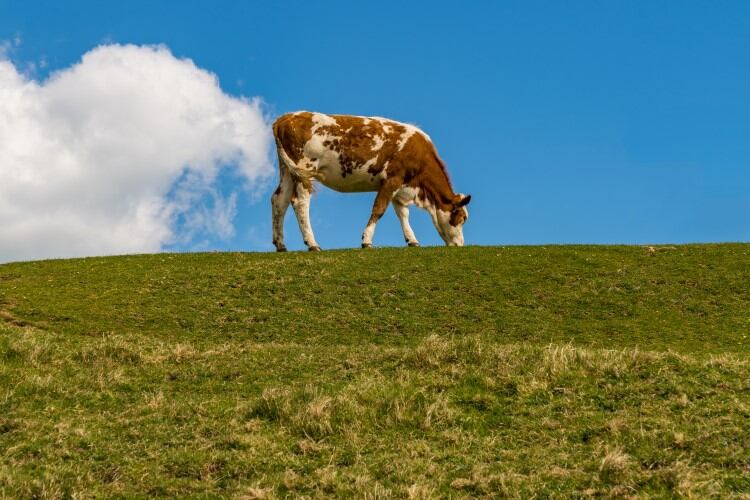According to the International Energy Agency, agriculture was the chief source of methane emissions caused by human activity in 2021. The majority of those emissions come from enteric fermentation, where ruminants, including dairy cows, produce methane during digestion.
And since methane is the second largest contributor to global warming (after only CO2), governments and food producers have been in arms over how to best address the issue - from methane-inhibiting animal feed to punitive fees for farmers.
At COP26 in November 2021, more than 100 countries representing 70% of the global economy – including the US and the EU, but without Russia and China – committed to reducing global methane emissions by ‘at least’ 30% from 2020 levels by 2030.
More than two years since the pledge was made by governments at COP26, Danone has become the first food company to align its own methane reduction target to this collective goal.
The company has pledged to cut emissions from its fresh milk supply chain by 30% over the next seven years – or around 4% per year on average – and will report on its methane emissions as part of its financial disclosure.
Danone, which works directly with 58,000 dairy farmers across 20 countries, expects to remove around 1.2m tons of CO2 equivalent methane emissions by the year 2030. To achieve this, the firm will invest in its regenerative agriculture program and other initiatives, including the launch of four new programs for methane reduction in Africa, Europe and the US.
The food giant is also launching a collaboration with Environmental Defense Fund over methane emissions reporting, data and science; co-funding models between companies and governments, and advocacy to governments to prioritize agricultural methane solutions.
Antoine de Saint-Affrique, CEO of Danone, commented: “Dairy products are an affordable source of nutrition for many people, at the core of our mission to bring health through food. As one of the largest dairy companies, we take the challenge of both producing more [to feed a growing population] and greatly reducing emissions and impact on climate.
“Our ambitious plan to reduce methane emissions – in line with Global Methane Pledges from 150 countries – is a commitment to build regenerative dairy. This step change requires a collective effort. Working with farmers, partners and governments, we have the power and duty to build farming models that benefit the climate and society, taking a step forward to tackling global warming together.”
Fred Krupp, president of EDF, commented: “Cutting methane emissions is one of the fastest and most effective ways to slow climate change. The dairy sector can play an important role in driving these reductions while boosting farmer livelihoods and increasing food security and nutrition. “Danone is the first food company raising this type of ambition, but it can’t be the last. This is the decisive decade for climate action. We invite other food companies, farmers and policymakers to join us on a path toward 2030 climate results.”
Calls for independent verification
In November 2022, the Institute of Agriculture and Trade Policy revealed in its research Emissions Impossible: Methane Edition, that some of the methane emissions from major dairy and meat producers, including Danone, could rival those of the whole of the EU. The body has once again called for 'increased transparency and robust, independent verification'.
In a statement for DairyReporter, the IATP said:
“Danone appears to be the first livestock processing company to make a methane reduction target in line with the Global Methane Pledge. According to our estimates in Emissions Impossible: Methane Edition, Danone emitted 6.3m tons of methane in 2020.
"It is unclear how Danone intends to make its promised emissions cuts of 1.2m tons. What’s critical is whether Danone is reducing methane by shifting away from a highly polluting system of mass dairy production with sufficient support for farmers to transition to less-emitting, agroecological systems or it is being done with unproven, still-not-developed techno-fixes and clever accounting tricks with greater costs to farmers. To fully assess companies’ climate commitments, we need mandatory and consistent reporting, increased transparency and robust independent verification.”

